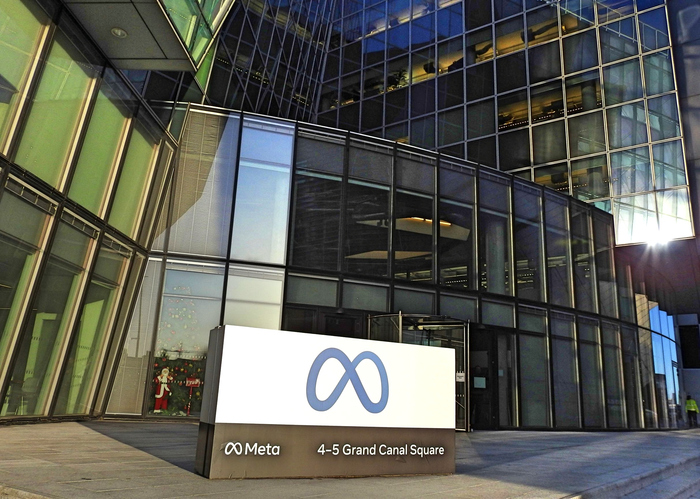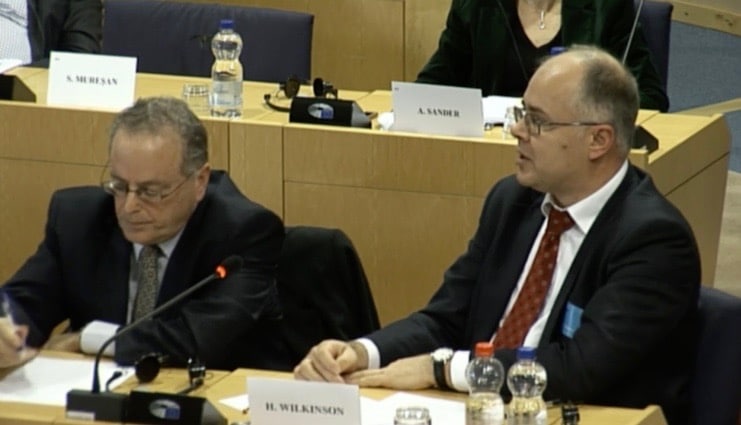What is ESG Fraud? Types, Examples, and Whistleblowing
ESG fraud occurs when companies or individuals falsely claim to be environmentally friendly or socially responsible. This deception can mislead investors and harm the environment. Learn more about this fraud and how to report it and become eligible for awards under the SEC Whistleblower Program.
Updated
May 15, 2025

ESG fraud occurs when a company, individual or organization omits or misrepresents facts about its environmental, social, and governance (ESG) performance to attract investors, boost its reputation, or meet regulatory compliance obligations.
There are many forms of ESG fraud, all of which involving making false or misleading statements about a company’s impact. Among the most common forms of ESG fraud is greenwashing. This occurs when a company positions its operations as being environmentally sound while actually engaging in environmentally harmful practices.
Such misleading statements can cause financial losses for investors or lenders who invest in or rely on companies based on their ESG performance data. ESG-conscious investors often invest only companies that meet certain ESG criteria. Those investors are harmed when a company lies about its ESG performance to attempt to increase the price of the stock.
Continue reading to learn more about ESG fraud types, examples, and how to blow the whistle to the SEC.
Types of ESG Fraud
There are several types of ESG fraud, which fall under each of the categories:
Environmental, Social, and Governance. These include:
Greenwashing
Greenwashing occurs when a company claims that their product is more environmentally friendly than it is. They might create labels with words such as “eco-friendly” or “sustainable” without the proper citification or evidence of such claims. Many times, a company will even highlight positive environmental actions while ignoring the negative ones.
Social Washing
Like greenwashing, social washing occurs when a company deploys misinformation to exaggerate its social impact. This might include making misleading claims about its charitable donations or community involvement, claiming fair labor practices, or disregarding its own purported diversity, equity, and inclusion (DEI) principles.
Governance Washing
Similarly, governance washing aims to distort the public’s perception about the diversity or independence of board members, conceal conflicts of interest, or adopt abusive executive compensation practices that could encourage fraud. For example, a CEO’s compensation could be tied too closely to short-term performance without adequate board oversight, making it more likely the CEO will engage in fraudulent practices to quickly increase the stock price.
Carbon Offset Fraud
This occurs when companies or individuals claim to offset their carbon emissions by funding projects that reduce greenhouse gas emissions. However, many carbon offset projects don’t even exist or do not deliver the intended results, or massively overstate the potential benefits. One form of carbon offset fraud involves a company selling the same carbon credit to different buyers, leading to inflated claims of emissions reduction.
Examples of ESG Fraud Cases
WisdomTree Asset Management (2024)
WisdomTree Asset Management, a New York-based investment adviser, was charged by the SEC for making false claims about the ESG focus of three of its exchange-traded funds (ETFs).
Despite marketing these funds as avoiding investments in fossil fuels and tobacco, the SEC found that the funds held significant investments in companies involved in these industries. This occurred due to the use of third-party data that did not effectively screen out these companies, coupled with a lack of internal policies and procedures to ensure compliance.
The SEC’s order mandates a $4 million civil penalty and a cease-and-desist order against WisdomTree.
Deutsche Bank: DWS Investment Management Americas (2023)
DWS Investment Management Americas, a subsidiary of Deutsche Bank, was charged by the SEC for ESG fraud in 2023.
The SEC found that DWS made misleading statements about its ESG investment process. While the firm marketed itself as a leader in ESG investing, the SEC found that DWS did not adequately implement its own ESG policies and procedures. This discrepancy between the firm’s public claims and its actual practices constitutes a significant ESG fraud.
To settle the charges, DWS agreed to pay a $19 million penalty in the ESG misstatement action.
Goldman Sachs Asset Management (2022)
Goldman Sachs Asset Management (GSAM) was charged by the SEC for failing to adhere to its own ESG policies and procedures for two mutual funds and a separately managed account strategy. Despite marketing these products as ESG investments, GSAM did not consistently follow its own guidelines for ESG research, including failing to complete required questionnaires before selecting securities. GSAM agreed to pay a $4 million penalty to settle the charges.
Report ESG Fraud: SEC Whistleblower Program
Individuals who have information regarding false or misleading statements about a company’s environmental, social, and governance practices can report it to the SEC and potentially obtain an award under the SEC Whistleblower Program.
Key features of the SEC Whistleblower Program include the following:
- Whistleblower Awards: If a whistleblower’s information leads to a successful enforcement action against a company for ESG fraud, and the total monetary sanctions collected exceed $1 million, the whistleblower may be eligible for an award of 10% to 30% of the total sanctions collected. The specific percentage awarded will depend on various factors, including the significance of the information provided and the whistleblower’s cooperation with the SEC, among other factors.
- Anti-Retaliation Protections: The Dodd-Frank Act provides robust protection against retaliation for whistleblowers who report ESG fraud. This means that employers are prohibited from taking adverse actions, such as termination, demotion, suspension, harassment, or discrimination, against whistleblowers.
- Anonymous Reporting: Whistleblowers may choose to report ESG fraud anonymously. However, it is recommended to be represented by an attorney to ensure confidentiality and maximize the potential for a reward. Even if a whistleblower chooses to file a report anonymously, the SEC has a strong track record of maintaining confidentiality.
For more detailed information on the SEC Whistleblower Program and how it applies to ESG fraud, please refer to the ESG Greenwashing and the SEC Whistleblower Program.
Seek Legal Assistance
You can help protect investors, consumers, and the environment by reporting your concerns to the SEC. However, given the complexity of ESG fraud cases, we suggest hiring a whistleblower attorney. By working with an experienced SEC attorney, whistleblowers can increase their chances of successfully exposing wrongdoing, protecting themselves from retaliation, and receiving a significant whistleblower award.
Led by former SEC acting chair and commissioner Allison Herren Lee, former SEC Enforcement Senior Counsel Andrew Feller, and renowned whistleblower attorney Stephen M. Kohn, our team has been shaping the landscape of whistleblower protection for over 35 years. Contact us today for a free case evaluation. There’s no fee unless we get an award for you.
Our Firm’s Cases

Environment & Human Rights Violations Exposed
Oil industry’s environmental crimes and cover-up in Colombia have been exposed. Whistleblower Andrés Olarte Peña, with the support of his attorneys Kohn, Kohn & Colapinto and the damning evidence compiled in the Iguana Papers, is calling for an investigation into Ecopetrol and its executives by the Colombian government and the U.S. Securities and Exchange Commission.

$30 Million Award
Protecting the confidentiality of Wall Street whistleblowers is among the most important breakthroughs in federal whistleblower law. Under the Dodd-Frank Act, whistleblowers can file anonymous cases, and everything about their case, including who they sued, remains secret.

$13.5 Million Award
Our firm represented an anonymous whistleblower, who on May 17, 2021, received a whistleblower award of almost $13.5 million. The SEC has issued more than $31 million in whistleblower awards related to this case.
Relevant FAQs
Latest News & Insights
During the Dodd-Frank rulemaking process, Kohn, Kohn and Colapinto’s partners worked closely with the SEC to create an effective whistleblower program.
During the Dodd-Frank rulemaking process, Kohn, Kohn and Colapinto’s partners worked closely with the SEC to create an effective whistleblower program.
Ready to blow the whistle? Our experienced team is here to protect your rights and guide you through the process. Contact us today for a confidential consultation.
Our pro bono team has helped lead the fight to pass amendments which would strengthen the False Claims Act (FCA).
Former SEC officials lead the firm’s new group, representing whistleblowers who report financial fraud and legal violations to the SEC, CFTC, DOJ, FinCEN, and the IRS.
![Reporting Recordkeeping Failures To The Sec [2025 Guide]](https://kkc.com/wp-content/uploads/2025/01/Recordkeeping-Failures.jpg)






